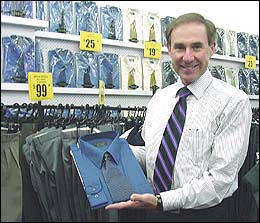Manu Caddie – 18/12/98
A name and an organisation to be remembered.
Dick Hubbard is Managing Director of Hubbard Foods Ltd. and Chairperson of a new organisation called “New Zealand Businesses for Social Responsibility” (BSR). The following article is based on a public address that Mr
Hubbard gave in Gisborne on 8 July 1998.
BSR produces a quarterly newsletter and membership is open to any for-profit businesses,including public and private corporations, SOEs and sole traders. BSR can be contacted through email to: enquiry@bsr.org.nz
What is the function of business? Dick Hubbard, or just “Dick” as he prefers to be known by employees, opened his presentation by contraposing Roger Kerr’s axiom, “The business of businesses is business”, with his own, that “The business of businesses is more than business”.
Kerr has gone so far as to suggest that any social contribution a business makes is actually theft from the shareholders. The claim was made that a significant shift in power has recently occurred which has transferred economic responsibility from democratically elected governments to financial entities, notably large corporations and their management representatives.
Hubbard argues that with the new economic power being exercised over local communities and national economies comes a greater social responsibility.
Of the top 100 economies in the world, 50 are companies, rather than countries.
Many corporations now have a GDP in excess of New Zealand’s. Of the 191 countries in the world in 1995 only 21 had economies which exceeded that of the largest corporation, Mitsubishi of Japan. Mitsubishi had sales of $184.5 billion, more than the GDP of Indonesia, the world’s fourth most populous nation.
Stakeholders Hubbard uses the proposition of ‘Stakeholder Theory’ in business to argue that a company must have more to its purpose and/or highest priority than the traditional role of making money for the owners (read shareholders – which includes, in Hubbard’s philosophy, the bank or financial institutions backing an enterprise).
Hubbard makes a distinction between legal and moral ownership of a company. Using the example of a young farmer being interviewed on TV who pointed out that even though he had a piece of paper giving him title and control over his farm to do as he wished with it, he was also a steward of the land, responsible for its care and protection for future generations.
Moral ownership and leadership tries to take into consideration all the ramifications of decisions, rather than just the financial implications. A paradigm shift is evident in the wider culture to a more ‘values based’ lifestyle and decision making process. This will be reflected in business, both as a reflection of the demographics – the baby-boomers starting to navel gaze and question the meaning of ‘success’ – and as a backlash against the excesses and falsity of the 1980’s materialistic mind-set.
A triple bottom line must exist for ‘sustainable’ businesses – financial, social and physical (natural). Each environment is equally important and success in each must become a priority for the stakeholders concerned. Stakeholders in any enterprise include the often, but not always, conflicting interests of shareholders, staff, suppliers, customers, community impacted, and the natural environment.
The Soul of a Business This approach will include a focus on a ‘corporate soul’ which makes management decisions from the heart as well as the head – what Hubbard calls below and above the line. Above the line decisions are win-win situations for the business and the benefactor. These include most transactions and also marketing tools like sponsorship and public donations which engage a sympathetic inclination from morally minded potential customers. Below the line decisions are those where the benefactors may not be in a position to repay the offering – and where it may be to the detriment of company profits or efficiency.
The Rewards Hubbard gives the example of employing a man who was unemployed for seven years, a man whom prospective employers were turning away simply because he had
been out of work so long that they presumed there must be something wrong with
him.
Most companies seem to require employees to be schizophrenic, leaving their brain at the door when they come to work, then going home to be a family member and so on. Hubbard tries to keep up with family life for his employees, seeing this as an important sphere of their well-being.
Open management principles of regular catch-up meetings and suggestion times (“accompanied by ‘a big feed”) are included in the company priorities.
Another example which crossed from below to above the line when the media found out, was taking his work-force of 90 people to Samoa for a long weekend. This was not just a holiday in the sun and surf as a reward for good work and loyalty, but rather the entrepreneur saw it as a way of recognising the Pacific Island communities that most of his staff come from in Mangere and the value of their culture and place of origin.
As a result he has had, Pacific Island community leaders contact him thanking the company’s efforts in raising the mana of Samoan people and contrasting its attitude with some of the prejudice against Samoan workers in New Zealand. This was a personalised, and culturally appropriate way of building a family feeling
between staff.
What is Businesses for Social Responsibility (NZ)? The new organisation, BSR, is being launched with the intention of opening up the debate on these issues, showing businesses options for taking the initiative in responsible management and pointing out some of the dangers and pitfalls of becoming ‘socially responsible’.
Hubbard is quick to give examples of businesses overseas who take a high moral position and are subsequently under far more scrutiny and vulnerability than others who may make far worse decisions and have little accountability.
He also wants to limit the organisation to corporate entities rather than including individual members as previous attempts in the United States attracted anti-business interests who curtailed the debate and scared-off businesses who were genuinely interested in working through the issues and needed a safe forum to do so.
He aims to make information available to interested parties, with an emphasis on the need to work closely between the non-profit sector, business and government. No strict criteria for joining seem to be applied. The group seems more interested in discussing ideas than using the name as a marketing gimmick. This will be an important point to monitor as the tokenism evident in the ‘greenwashing’ phenomenon could potentially discredit the organisation unless it has a publicised process for approval or certification and the attendant strategies of review and development.
A Time for Change Hubbard claims BSR is an idea whose time has come. Many would argue its time was long ago, but BSR should be commended and supported by consumers and all ‘stakeholders’ as at least an initial step in the right direction for corporate accountability in an age of apparent irresponsibility and legislated negligence.
It will be important for BSR to consider how it can interact with non-business interests, how the democratic process could be applied to the business sector, and how it can further refine over time key policies such as employment goals, entry and exit criteria and the development of long-term vision and strategies.


